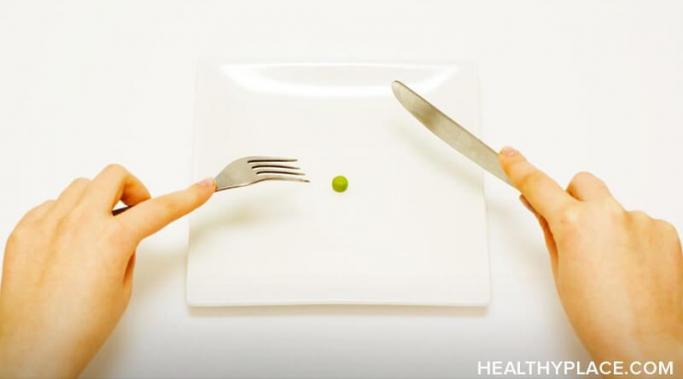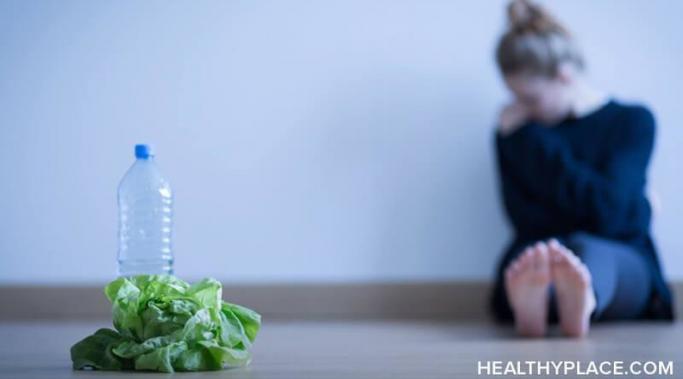Addiction is a strange thing. No one sets out to become addicted, whether it is to cigarettes, prescription medications, alcohol or any other substance. My father had been an alcoholic and he had made our lives a living hell. I never wanted to see myself in that light.
Then I developed anorexia nervosa. At first, I didn't think of it as an illness of addiction. My husband and I argued about it one night several years ago. I had again started the cycle — restrict, starve, purge with laxatives as needed, and repeat every day.
"You're addicted to starving," he said.
"Anorexia isn't addiction. Anorexia is totally different," I argued. "If you would read some books or something . . . You don't know what you're talking about, you don't understand at all."
"I did read that one book, and anorexia is an addiction. Just like alcoholism."
Family Relationships
Eating disorders and loneliness. It is not something we speak or write about often. It is painful to think about being lonely. But I believe people with eating disorders are often very lonely. It is the nature of these illnesses. But it doesn't have to be this way. I would like to shine some light into these dark corners of loneliness, and perhaps help other people with eating disorders feel less alone.
Developing anorexia nervosa in my early forties still feels a bit surreal. As I begin to recover and regain health, I am looking for answers that might not ever be found. Why would a woman with no previous history of any eating disorder suddenly fall into the hole of anorexia starting at the age of 41?
Like Alice in Wonderland, I have been moving through the strange world of anorexia perplexed by my very presence here. The questions continue to hammer at my brain.
The road to eating disorder recovery has been a long and difficult journey for me. I often have felt lost in the fog of anorexia, unable to relate to my husband or other people. I have struggled, at times, to even think when I was in my worst restrictive periods. Often, I would wake up and wish I had died in my sleep. I was that tired of fighting anorexia.
Today, I feel triumphant. I reached my healthy weight this week, and my doctor says I am ready to move onto the next step of recovery: peeling off the layers of anorexia and discovering my true self.
When my husband, David, left in August, I was hurt and angry that he choose to walk out while I was struggling with anorexia nervosa. Many people thought I was too quick to forgive him when he returned a month later. But I thought about what anorexia had done to our marriage for the past three years. He also struggled as he watched the woman he fell in love with fifteen years ago whittle away to almost nothing.
My husband, David, left me in August. Because of my anorexia. He couldn't handle it, after more than three years of dealing with a wife who seemed hell-bent on dying. This past spring, I spent six weeks in a partial hospitalization program that did very little for me but crush what little self-esteem I had left. I spent the summer depressed and anxious, mainly about the size of my body.
I immediately began restricting and purging (through laxative abuse) and soon lost all the weight I had gained while in the program. David soon lost all hope I would recover from anorexia. I had forgotten — again — that my eating disorder doesn't just impact me, but also my husband and loved ones.





